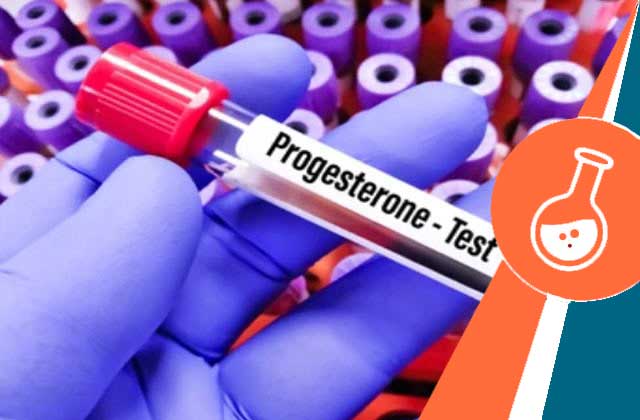
The Progesterone Test: What Women Need to Know
- Definition of Progesterone Test: A progesterone test is a medical test that measures the level of progesterone hormone in a woman’s body.
- Importance of Progesterone Test in Women’s Health: Progesterone plays a critical role in women’s reproductive health, and measuring its levels can help diagnose certain conditions and guide treatment.
- Purpose of the Blog Post: This blog post aims to provide women with a comprehensive guide to the progesterone test, including its definition, importance, when it’s needed, how it’s done, what the results mean, and frequently asked questions.
What is Progesterone and Why is it Important?
- Definition of Progesterone Hormone: Progesterone is a hormone produced by the ovaries that helps prepare the uterus for pregnancy and maintain a healthy pregnancy.
- Role of Progesterone in Women’s Reproductive Health: Progesterone is essential for a healthy menstrual cycle, ovulation, conception, implantation, and pregnancy. It also regulates the growth and development of breast tissue and helps prevent the risk of endometrial cancer.
- Importance of Measuring Progesterone Levels: Measuring progesterone levels can help diagnose and monitor various conditions, such as infertility, irregular periods, polycystic ovary syndrome (PCOS), and miscarriage.
When is a Progesterone Test Needed?
- Fertility Assessment: A progesterone test is often used as part of a fertility assessment to determine if ovulation is occurring and to predict the best time for conception.
- Menstrual Cycle Evaluation: A progesterone test can help evaluate menstrual irregularities, such as absent or infrequent periods, heavy bleeding, or short luteal phase.
- Pregnancy Monitoring: A progesterone test can be used to monitor the health of a pregnancy and detect potential problems, such as ectopic pregnancy, miscarriage, or preterm labor.
How is a Progesterone Test Done?
- Blood Test: A blood test is the most common way to measure progesterone levels. A healthcare provider will draw blood from a vein in the arm, and the sample will be sent to a laboratory for analysis.
- Saliva Test: A saliva test is a non-invasive way to measure progesterone levels. A woman will collect a saliva sample using a swab or a spit kit, and the sample will be sent to a laboratory for analysis.
- Urine Test: A urine test is another non-invasive way to measure progesterone levels. A woman will collect a urine sample using a test strip or a collection cup, and the sample will be sent to a laboratory for analysis.
What Do Progesterone Test Results Mean?
- Normal Range of Progesterone Levels: Normal progesterone levels vary depending on the phase of the menstrual cycle and the age of the woman. In general, a normal progesterone level during the luteal phase (after ovulation) is 5-20 ng/mL.
- High Progesterone Levels: High progesterone levels can indicate pregnancy, ovarian cysts, or hormonal imbalances, such as adrenal or thyroid disorders.
- Low Progesterone Levels: Low progesterone levels can indicate infertility, anovulation, miscarriage, or luteal phase defects.
Conclusion
- Importance of Progesterone Testing: Progesterone testing plays a critical role in diagnosing and monitoring various women’s health conditions, including fertility, menstrual irregularities, and pregnancy.
- Encouragement to Consult with Healthcare Provider: It’s essential to consult with your healthcare provider about the need for progesterone testing, the type of test, and the interpretation of the results.
- Final Thoughts and Key Takeaways: Progesterone testing can provide valuable information about women’s reproductive health, but it’s only one aspect of a comprehensive evaluation and treatment plan. By understanding the importance of progesterone and the progesterone test, women can take an active role in their health and well-being.
More Related Tests
Why To Book with HealthCareOnTime

17 Crores+ Samples Processed

World Class Technology Labs

25+ Years of Trust & Experience

Free Home Collection
FAQs Around Progesterone Test (P4 Test)
How much does Progesterone Test cost?
The Progesterone Test cost is Rs.700, although it is now available for Rs.546 because of the offer.
How Do I Prepare for a Progesterone Test?
Depending on the type of test, you may need to prepare differently. A blood test usually requires fasting for a few hours before the test, while a saliva or urine test may not require any special preparation. It’s best to consult with your healthcare provider to get specific instructions.
How Often Should I Get a Progesterone Test?
The frequency of progesterone testing depends on the reason for testing and the treatment plan. It’s best to follow your healthcare provider’s advice and schedule any necessary follow-up tests.
Can a Progesterone Test Detect Pregnancy?
Yes, a progesterone test can detect pregnancy. Progesterone levels rise after ovulation and continue to increase during early pregnancy to support the developing embryo and fetus.
What Are the Possible Side Effects of Progesterone Testing?
There are usually no side effects from progesterone testing, except for mild discomfort or bruising from the blood draw. However, some women may experience anxiety or stress related to the test results or the reason for testing.
Can I Get a Progesterone Test Without a Doctor's Prescription?
No, a progesterone test requires a doctor’s prescription and a laboratory order. You can discuss the need for testing with your healthcare provider and get a referral for testing if necessary.












